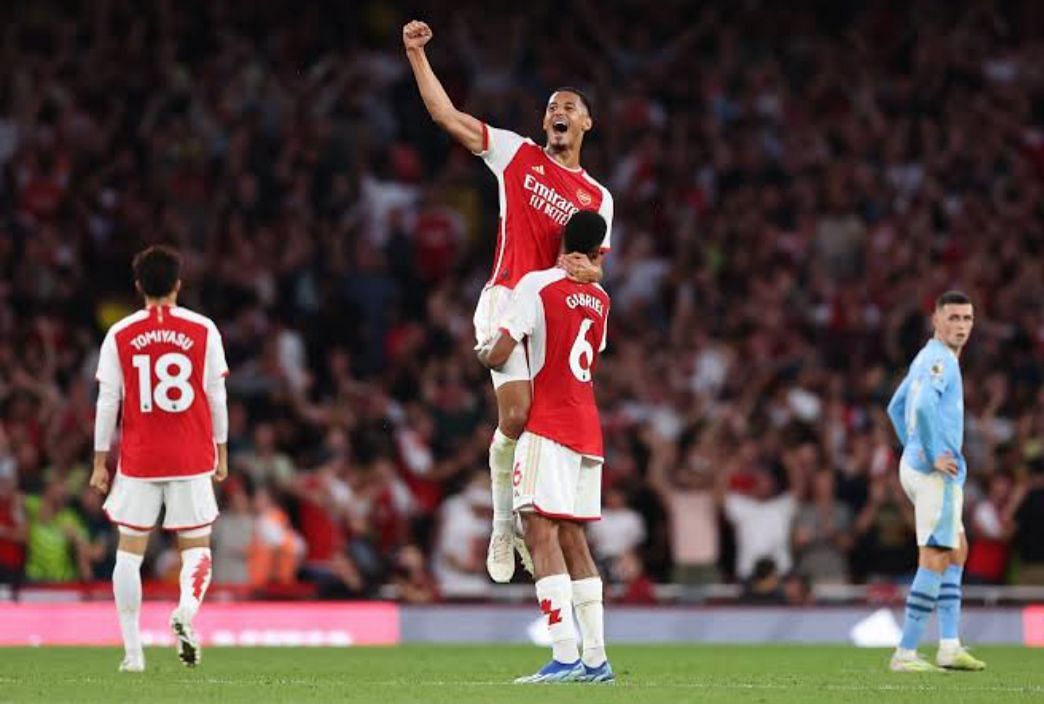
Two reasons why Arsenal beat Manchester City 1-0 in Premier League
Arsenal beat Manchester City 1-0 in a Premier League match at the Emirates Stadium on Sunday, October 8. Gabriel Martinelli scored the only goal of the match in the 86th minute to give Mikel Arteta his first win over his previous club as the Gunners’ manager.
Arsenal are now in the second place in the league table with 20 points in eight matches, while Manchester City dropped to the third place with 18 points from eight games. Pep Guardiola’s side have now lost their last three matches across the two domestic competitions.
On that note, let us take a look at two reasons why Arsenal managed to beat Manchester City:
#1. Manchester City lacking width in attack and being too insipid
Manchester City was surprisingly insipid in the match, even considering the fact that they were missing two key midfielders Kevin de Bruyne and Rodri. Moreover, Bernardo Silva played the first half as a holding midfielder, which meant that City lacked creative influence up front.
The City adopted a 4-3-2-1 formation with Julian Alvarez and Phil Foden behind Erling Haaland, which was a surprisingly defensive formation for a side of their caliber. As a result, they lacked width in their attack until Jeremy Doku was introduced in the second half.
Rico Lewis played in an advanced role for the majority of the time he was on the pitch but only did so to help City’s high press. He hardly played any probing forward pass, which meant that Haaland lacked a steady supply of balls played to him.
City had only four shots in the match against Arsenal's 12. For once, the treble winners looked like a side that was happy to get a point from the match.
#2. Arsenal’s inspired substitutions
Each of Arsenal’s three substitutes had an active role in the goal. Takehiro Tomiyasu headed the ball down from a long cross to Kai Havertz, who held on to it before making a pass to Martinelli. The Brazilian winger scored with a shot from outside the penalty box, as it deflected off Nathan Ake to beat Ederson.
Arsenal primarily attacked through the right flank in the first half, with Gabriel Jesus enjoying a great duel with Josko Gvardiol. However, they hardly attacked through the left, with Leandro Trossard having a forgettable outing. As Martinelli replaced Trossard after the break, Arsenal’s attacks started flowing through the left as well.
Arteta then made Havertz play as a No. 9, while one expected him to play as a central midfield, with Jesus switching to the center-forward’s role after Eddie Nketiah’s exit. As it turned out, Havertz’s composure on the ball allowed the Gunners to score the match-winner.